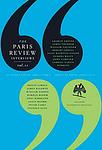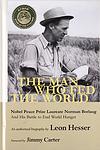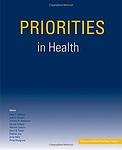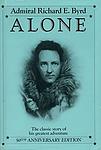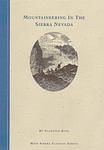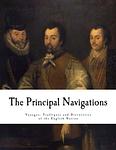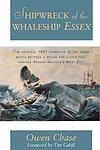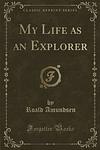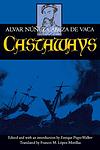The Greatest "Nonfiction" Books of All Time
Click to learn how this list is calculated.
This list represents a comprehensive and trusted collection of the greatest books. Developed through a specialized algorithm, it brings together 300 'best of' book lists to form a definitive guide to the world's most acclaimed books. For those interested in how these books are chosen, additional details can be found on the rankings page.
Genres
Countries
Date Range
Reading Statistics
Click the button below to see how many of these books you've read!
Download
If you're interested in downloading this list as a CSV file for use in a spreadsheet application, you can easily do so by clicking the button below. Please note that to ensure a manageable file size and faster download, the CSV will include details for only the first 500 books.
Download-
2301. K2 The Savage Mountain by Charles Houston, Robert Bates
"K2 The Savage Mountain" is a gripping account of the 1953 American expedition to the world's second highest, yet most difficult to climb mountain, K2. The authors, who were part of the expedition, chronicle their team's heroic struggle for survival against harsh weather conditions, a dwindling supply of oxygen and food, and the mental and physical toll of climbing at such high altitudes. The book provides a detailed and harrowing insight into the world of mountaineering and the relentless determination required to conquer such formidable peaks.
-
2302. The Paris Review Interviews by Paris Review
The book is a collection of in-depth, personal interviews with some of the greatest literary minds of the 20th century. It provides a unique insight into their creative processes, inspirations, and struggles. The discussions delve into their thoughts on the craft of writing, their individual approaches to storytelling, and the personal experiences that have shaped their works. This book is a valuable resource for aspiring writers and literature enthusiasts alike.
-
2303. The Box by Marc Levinson
This book provides a comprehensive history of the shipping container and its monumental impact on global trade and the economy. It delves into how a simple, standardized box revolutionized transportation and logistics, making it vastly more efficient and cost-effective. The narrative explores the container's inception, the challenges it overcame, and how it transformed ports, shipping industries, and even entire economies around the world. By focusing on this seemingly mundane object, the book uncovers the profound effects it has had on globalization, reshaping how goods are moved and traded on an international scale.
-
2304. How To Spend $50 Billion To Make The World A Better Place by Bjørn Lomborg
This book presents a thought-provoking analysis on the most effective ways to utilize a hypothetical budget of $50 billion to address global challenges. The author, leveraging insights from leading economists and experts, prioritizes various interventions—from healthcare and education to climate change mitigation—based on their potential to deliver the greatest benefits to humanity. Through a rigorous cost-benefit analysis, the text challenges readers to think critically about the allocation of resources in tackling the world's most pressing issues, advocating for evidence-based solutions that promise the highest returns on investment for improving global welfare.
-
2305. Global Health by Ann Lindstrand
This book provides a comprehensive overview of global health, addressing the key issues, challenges, and strategies involved in improving health outcomes worldwide. It delves into the determinants of health, the burden of diseases, and the complex interplay between health, economic development, and social factors. The text emphasizes the importance of a multidisciplinary approach, incorporating perspectives from epidemiology, public policy, and international relations, to tackle the global health disparities and pave the way towards achieving equity in health for all populations. Through case studies and analysis of current trends, the book offers insights into the roles of various stakeholders, including governments, NGOs, and the private sector, in advancing public health goals on a global scale.
-
2306. Science Business by Gary P. Pisano
This book delves into the unique challenges and opportunities that lie at the intersection of science and business, exploring how companies in the biotechnology and pharmaceutical sectors can navigate the complexities of innovation, research and development, and commercialization. It provides a comprehensive analysis of the strategies that successful firms employ to manage the risks and capitalize on the advancements in science and technology. Through a blend of case studies, theoretical insights, and practical advice, the book offers a roadmap for companies looking to thrive in the highly competitive and rapidly evolving landscape of the science-based industries.
-
2307. The Man Who Fed The World by Leon Hesser
This book provides a compelling biography of Norman Borlaug, an agronomist whose pioneering work in developing high-yield, disease-resistant wheat varieties played a crucial role in averting widespread hunger and famine in the mid-20th century. Dubbed the father of the Green Revolution, Borlaug's innovations transformed agriculture, particularly in Mexico, India, and Pakistan, dramatically increasing food production and saving billions of lives from starvation. Through his story, the narrative explores the challenges of food security, the impact of scientific innovation on global hunger, and the enduring legacy of a man whose work reshaped the world's approach to farming and food distribution.
-
2308. Priorities In Health by Dean T. Jamison
This book delves into the critical analysis of health priorities, offering a comprehensive overview of how health systems can effectively allocate resources to maximize health outcomes. It explores various methodologies and tools for assessing health needs, setting priorities, and implementing health interventions in diverse settings. Drawing on extensive research and case studies, the text provides insights into the economic, ethical, and practical considerations involved in making informed decisions about health care priorities. It serves as a valuable resource for policymakers, health professionals, and researchers seeking to improve health service delivery and address the pressing challenges of global health disparities.
-
2309. Mindset by Carol S. Dweck
This book explores the powerful concept of mindset, presenting the idea that the way individuals think about their abilities and potential fundamentally influences their success. It distinguishes between two types of mindsets: the fixed mindset, which assumes that our character, intelligence, and creative ability are static givens which we can't change in any meaningful way, and the growth mindset, which thrives on challenge and sees failure not as evidence of unintelligence but as a heartening springboard for growth and for stretching our existing abilities. Through analysis and real-life examples, the book demonstrates how the mindset we adopt not only profoundly affects our personal achievement but also has the potential to impact all areas of our lives, suggesting that by changing our mindset, we can significantly alter our life course.
-
2310. Gipsy Moth Circles the World by Francis Chichester
This book chronicles the author's solo sailing journey around the globe in his yacht, the Gipsy Moth IV. Battling harsh weather conditions, loneliness, and equipment failure, he successfully circumnavigates the world, starting and ending in England, and becoming the first person to do so by the clipper route, and the fastest circumnavigator, in nine months and one day overall. The book details his adventure and the challenges he faced, providing an intimate look at the world of sailing and exploration.
-
2311. Alone by Richard Byrd
This book is a riveting account of the author's time spent alone in the Antarctic wilderness. He details his experiences of solitude, the harsh climate, and the physical and mental challenges he faced during his isolation. The narrative also provides a deep insight into his struggle for survival, his observations of the natural world, and his reflections on the human condition.
-
2312. The Royal Road to Romance by Richard Halliburton
This travel memoir recounts a young man's adventurous journey around the world. Despite having a comfortable life, he decides to leave everything behind to explore different cultures and landscapes. His travels take him to places such as India, where he swims in the sacred Ganges River, and Mount Olympus, where he encounters bandits. His experiences range from being imprisoned in Gibraltar to being shot at in Mexico, all while capturing the essence of the early 20th-century world.
-
2313. Mountaineering in the Sierra Nevada by Clarence King
This book is a collection of personal accounts and observations about climbing in the Sierra Nevada during the late 19th century. The author details his experiences, including the physical and mental challenges, the breathtaking beauty of the landscape, and the thrill of exploration and discovery. He also provides insightful commentary on the geological features of the region, the indigenous people he encountered, and the impact of the Gold Rush on the environment and society.
-
2314. Journal of the Discovery of the Source of the Nile by John Hanning Speke
This book is a detailed account of an adventurous exploration to discover the source of the Nile River. The author, an English explorer, recounts his journey through Africa, detailing the various hardships, dangers, and cultural encounters experienced along the way. The narrative culminates in his discovery of Lake Victoria, which he claimed as the Nile's source. The book offers an intriguing look into 19th-century African exploration and the determination that led to one of the era's most significant geographical discoveries.
-
2315. The Rest Of The Way by J. D. McClatchy
"The Rest of the Way" is a collection of poems that delve into the complexities of human experience, exploring themes of love, loss, and the passage of time. The poet uses rich language and vivid imagery to evoke emotional landscapes, reflecting on personal history and the universal human condition. The work is characterized by its lyrical elegance and intellectual depth, inviting readers to contemplate the intricate interplay between memory, desire, and the relentless march of life. Through a tapestry of varied poetic forms, the collection offers a contemplative journey that resonates with introspection and a poignant understanding of mortality.
-
2316. Alive by Piers Paul Read
"Alive" is a gripping true story of survival, recounting the harrowing ordeal of a Uruguayan rugby team whose plane crashes in the Andes mountains in 1972. Stranded for over two months in the harsh, freezing wilderness, the survivors face unimaginable hardships, including avalanches, starvation, and the devastating decision to resort to cannibalism to stay alive. The book is a testament to the strength of the human spirit and the will to survive against all odds.
-
2317. The Principal Navigations by Richard Hakluyt
"The Principal Navigations" is a comprehensive collection of English travel narratives from the 16th century, detailing a wide range of voyages and expeditions. The book includes accounts of journeys to the New World, Asia, and Africa, and features explorations by famous figures like Sir Francis Drake and Sir Walter Raleigh. The narratives provide a historical record of the era's discoveries, cultural encounters, and colonial endeavors, giving readers a unique insight into the period's maritime exploration and its impact on the world.
-
2318. Incidents of Travel in Yucatan by John Lloyd
This book is a detailed and intriguing exploration of the Yucatan Peninsula, capturing the author's journey through the region in the 19th century. The narrative provides a comprehensive account of the local Mayan culture, architecture, and archaeological sites, including the ruins of ancient civilizations. The author's keen observations and descriptions bring to life the landscape, flora, fauna, and the everyday life of the people, offering a vivid historical perspective of the Yucatan.
-
2319. Shipwreck of the Whaleship Essex by Owen Chase
This book is a first-hand account of the infamous maritime disaster involving the sinking of a whaleship by a sperm whale in the South Pacific. It chronicles the harrowing experiences of the ship's crew who were left stranded in the open sea for months. The survivors faced starvation, dehydration, and resorted to cannibalism in their desperate struggle for survival. The narrative serves as a testament to human endurance and resilience in the face of extreme adversity.
-
2320. Life in the Far West by George Frederick Ruxton
"Life in the Far West" is a vivid account of the early American frontier, highlighting the lives of trappers and traders in the Rocky Mountains. The narrative, based on the author's own experiences, provides detailed descriptions of the rugged lifestyle, the diverse characters encountered, and the often dangerous and violent events that occurred. It also offers an insightful look into the interactions between the settlers and the native tribes, making it a valuable historical resource.
-
2321. My Life As an Explorer (Amundsen) by Roald Amundsen
This autobiography tells the story of a Norwegian explorer who led the first expeditions to reach the South Pole, traverse the Northwest Passage, and fly over the North Pole in a dirigible. The book provides a detailed account of his adventures, including his experiences with the indigenous peoples of the Arctic, his struggles with harsh weather conditions, and his insights on leadership and survival in extreme environments. The author's love for exploration and his respect for the natural world shine through in his writing.
-
2322. Mutiny on the Bounty by William Bligh
The book is a historical narrative about the infamous mutiny that took place on the HMS Bounty in 1789. It chronicles the journey of Lieutenant William Bligh and his crew as they embark on a mission to transport breadfruit plants from Tahiti to the West Indies. The journey takes a tragic turn when some of the crew members, led by Master's Mate Fletcher Christian, rebel against Bligh's harsh discipline, seize control of the ship and set Bligh and his loyalists adrift in a small boat. The narrative is a gripping account of Bligh's survival and his relentless pursuit of justice against the mutineers.
-
2323. Castaways by Alvar Núñez Cabeza de Vaca
"Castaways" is a historical narrative that recounts the experiences of an early Spanish explorer who, along with his crew, shipwrecks off the coast of Florida. Stranded in unknown territory, the survivors must learn to adapt to the harsh environment, interacting with native tribes and navigating through unfamiliar landscapes. The story is a testament to human resilience and the profound impact of cross-cultural encounters during the age of exploration.
-
2324. The Adventures of Captain Bonneville by Washington Irving
This book chronicles the real-life expeditions of a U.S. Army officer in the American West. The officer, intrigued by the vast frontier, takes a leave of absence from the military to explore the wilderness, trade with Native American tribes, and hunt game. His adventures include encounters with various Native American cultures, survival in harsh conditions, and exploration of uncharted territories. The narrative presents a vivid picture of the American West during the era of Westward Expansion.
-
2325. Cooper's Creek by Alan Moorehead
"Cooper's Creek" is a historical account of the 1860 Australian expedition led by Robert O'Hara Burke and William John Wills. The book details their ambitious journey to cross the Australian continent from south to north and back, a journey that resulted in the tragic deaths of both men. The author meticulously details the planning and execution of the expedition, the harsh realities of the Australian outback, and the complex personalities of the two men, while also providing a broader context of the era's fascination with exploration and scientific discovery.
Reading Statistics
Click the button below to see how many of these books you've read!
Download
If you're interested in downloading this list as a CSV file for use in a spreadsheet application, you can easily do so by clicking the button below. Please note that to ensure a manageable file size and faster download, the CSV will include details for only the first 500 books.
Download
